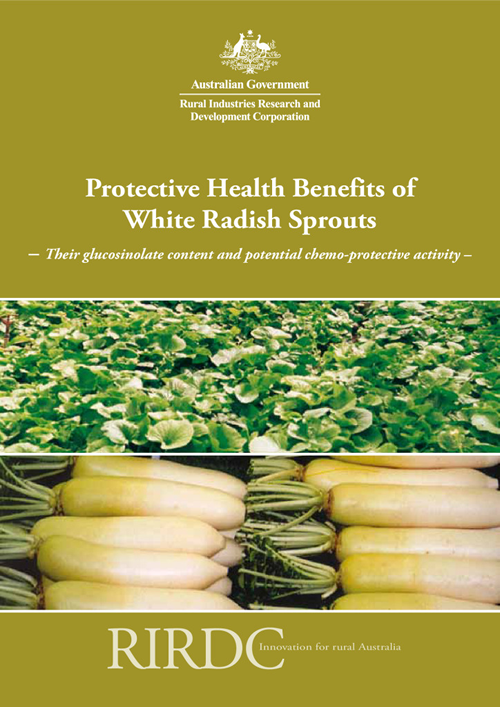Consumption of vegetables belonging to the Brassica family has been associated with a decreased incidence of various cancers, particularly colorectal cancer, which has partly been attributed to the glucosinolates that they contain. White radish (daikon) has been identified out of a wide range of Asian vegetables as having a glucosinolate profile with anti-carcinogenic (chemo-protective) potential.
This RIRDC study identifies white radish and radish varieties with particularly high levels of glucoraphenin, and the physiological stage at which they would provide greatest potential. It was confirmed early on that sprouted seed provided the most potent food-source, although white radish leaves were also identified as having similar potential to broccoli florets, a vegetable more widely studied for anti-carcinogenic activity.





